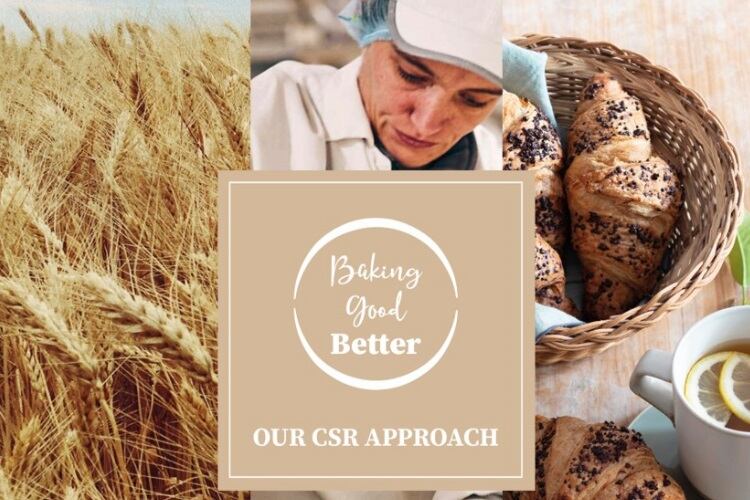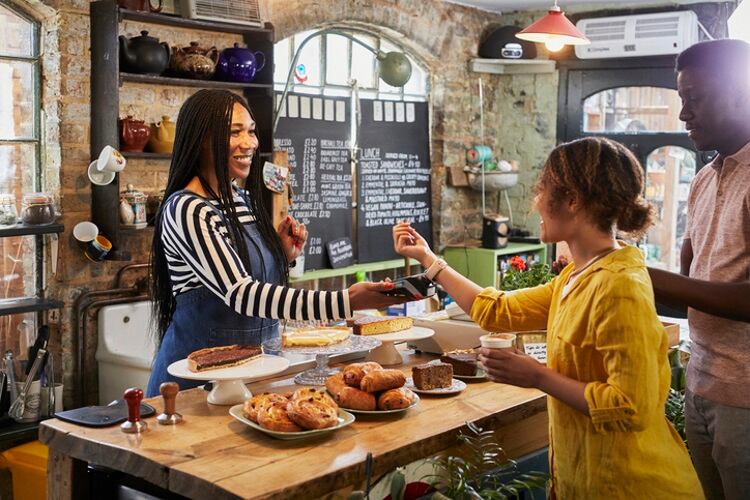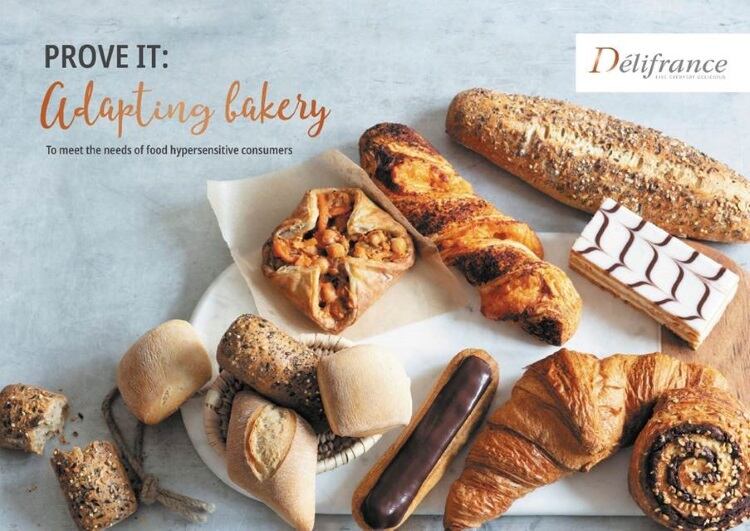Baking Good Better is directly linked to the impacts of Délifrance’s business – its DNA, values and ambition – but is also fed by the framework set by VIVESCIA’s Link launched in June 2022.
As a major agri-food business, VIVESCIA believes it has a key role in developing solutions to challenges like climate change, global food security and the transformation of agricultural and production models. Link is designed to cultivate ties to the planet (climate, agroecological transitions, biodiversity and packaging, environmental management); to people (health and wellbeing, diversity and inclusion); and to the value chain (from grain to table, contributing to the economy and sharing know-how).
Aligned to this mindset and to go farther and faster, Délifrance’s revamped CSR strategy is similarly built around three pillars: planet, people and products.
“Corporate social responsibility is part of our strategic pillars and we want to go further and build a strong CSR culture among our employees,” said Délifrance CEO Robert O’Boyle.
“CSR is not new at Délifrance: the teams have been working on many topics linked to CSR for years, but Baking Good Better clarifies our purpose and sets a framework to achieve our ambition and be bolder on our future objectives.
“We have defined some key priorities that we will focus on within the next few months, such as energy efficiency and consumption reduction, more sustainable sourcing, and our employees’ safety and wellbeing.
“We want to be a company with a positive impact.”
Environmental foodprint

Reducing its carbon and overall environment impact is a priority for Délifrance, which pledges to:
- Reduce greenhouse gas (GHG) emissions by 20% by 2025 (Scopes 1 & 2 vs 2015) – both direct and indirect emissions (farmers, suppliers, freight). This will be achieved by optimising energy consumption and working on a lower carbon energy mix by integrating renewable energy. The company also plans to progressively switch to 100% of refrigerants that have a lower impact on the environment.
- Define a climate strategy on all scopes, by the end of 2022. End goal is to contribute to global carbon neutrality by 2050.
- Ensure that 100% of its 14 production sites (both in France and abroad) comply with the Group Environmental Charter by 2024.
- Use 100% FSC-certified cardboard (from sustainably-managed forests) and 100% recyclable or reusable packaging by 2025. The company has already made progress in this space, having reduced the use of plastic for the plastic film on its pallets; and reducing the thickness of it consumer bags, while making them recyclable. Currently, 100% of its cardboard secondary packaging is made of recycled materials; 96% of its cardboard is FSC-certified; and 98% of its packaging is recyclable or reusable.
- Limit food waste by maintaining its onsite rate (99.2%) of its byproducts valorised (mainly through animal feed, methanisation or composting) and identifying new solutions. The baker is a long-time partner of campaigns like Too Good to Go to gift on unsold finished goods.
Diversity, inclusion and workplace wellbeing
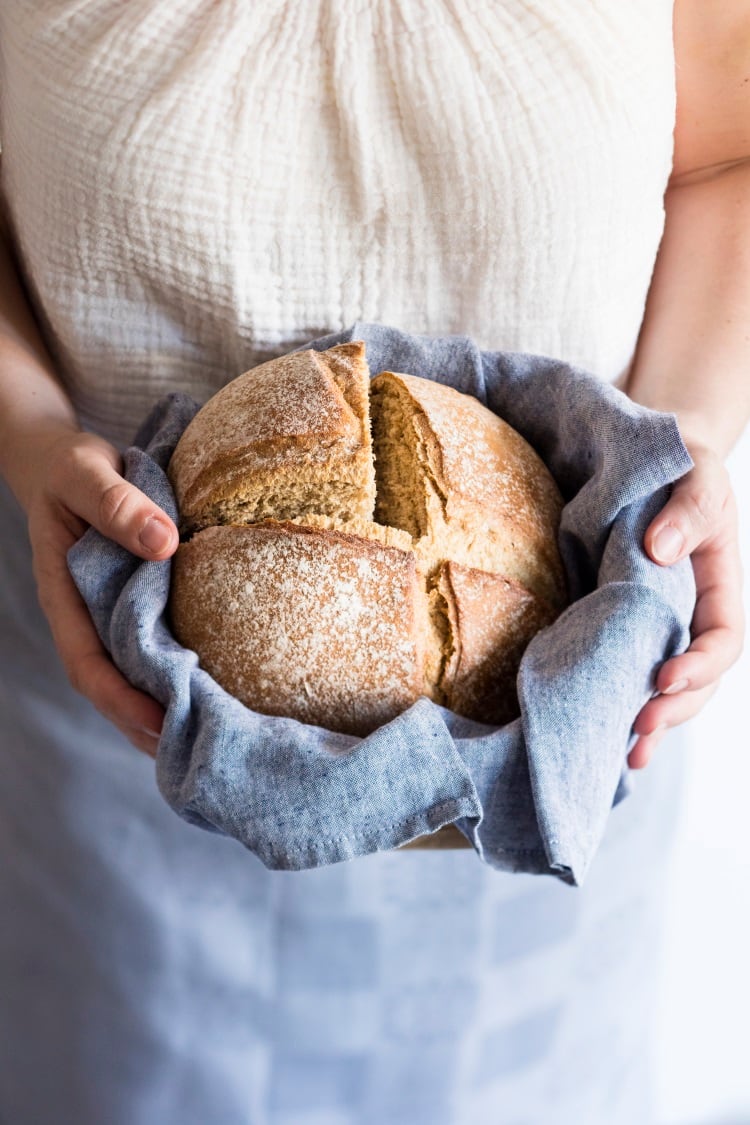
Like many other companies, guaranteeing safety and wellbeing in the workplace is a key focus for Délifrance, which has committed to:
- Slash accident frequency rate by half between 2021 and 2025, but ensure 80% of its sites maintain full-time production without lost-time accidents. The company has recently implemented a policy for remote working.
- Train 100% of employees in psychosocial hazards (which increase the risk of work-related street and can lead to psychological or physical harm) by 2025.
- Provide at least one training opportunity each year to 80% of employees by 2025. The bakery manufacturer has a 3,000-strong workforce across the world, so training is a key focus to attract and retain the best talent.
- Aim for a more diversified workplace, with at least 40% of senior executives being women by 2025. The company’s equality index in France reached the score of 89/100 in 2021. It now wants to extend this score to its other sites and subsidiaries.
- Include more young people – at least 50% of apprentices and 6-month interns hired with a long-term contract by 2025 – along with people with disabilities (currently, 6.84% of employees in France).
- Open the annual Grain Day Culture event to 100% of employees by 2025.
Product know-how

With flour its main raw material, Délifrance has pledged that all its sites will use 100% sustainable flour by 2027. To achieve this, the company will only use wheat cultivated by VIVESCIA farmers who follow regenerative agriculture practices – which improve soil health and help to fight climate change by storing carbon in the soils.
Already, the Délifrance Héritage bread range uses flour from CRC-certified wheat, which not only promotes biodiversity, but cements the products’ French origin and provides a fair remuneration for farmers.
Similarly, the company has committed to sourcing 100% RSPO-certified palm oil by 2025 and 100% certified cocoa by 2026.
The company is currently working to define a responsible purchasing policy for all raw materials, but has already incorporated 100% cage-free eggs and 100% of wheat flour without storage insecticides in its French factories.
Since the end of 2021, no red additives are used in 100% of the company’s bread, viennoiseries and savoury products – along with 70% of pastries – made in EU factories. The company wants to push this to 100% across the board by 2025. It is also working to reduce the use of orange additives as much as possible.
Its food safety pledge is to have all its sites certified FSSC 2200 by 2026.
Achievements to date
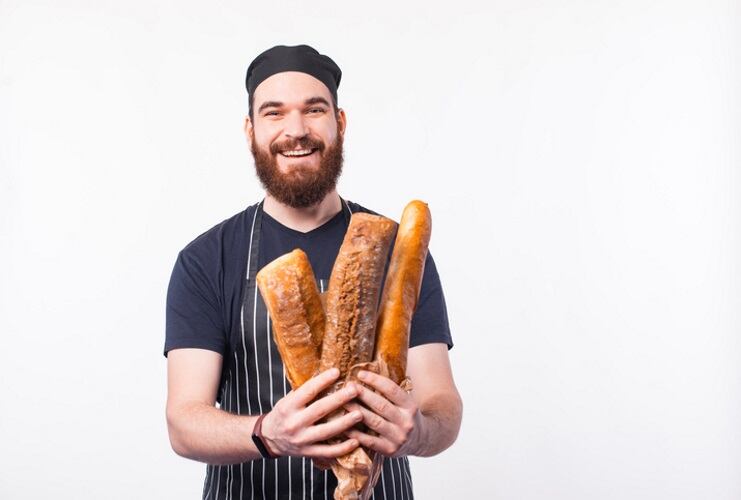
Délifrance has already made wide-ranging changes across its business.
The Care programme to bolster employee health and safety was launched in 2016.
The Go Clean initiative – to simplify recipes, source more sustainably and to work on the nutritional profile of products – was introduced in 2019.
It embarked on its Sustainable Packaging journey in 2020.
Food waste actions started in 2020, with partnerships with Good to Go and the creation of its All Taste: No Waste recipes for customers.
“As a subsidiary of France’s largest grain cooperative, we’re able to ensure that social responsibility is baked into our business and products at every step of the supply chain: from field to fork,” said Niall Cogan, GM of UK&I, Délifrance.
“CSR is hugely important to us a business, and we’re continuing to work with customers and suppliers in the UK and Ireland to reinforce this commitment, creating delicious products that meet the needs of the planet as well as the market.
“We’ve set ambitious objectives. And our CSR achievements to date are already driving the business firmly in the right direction.”


